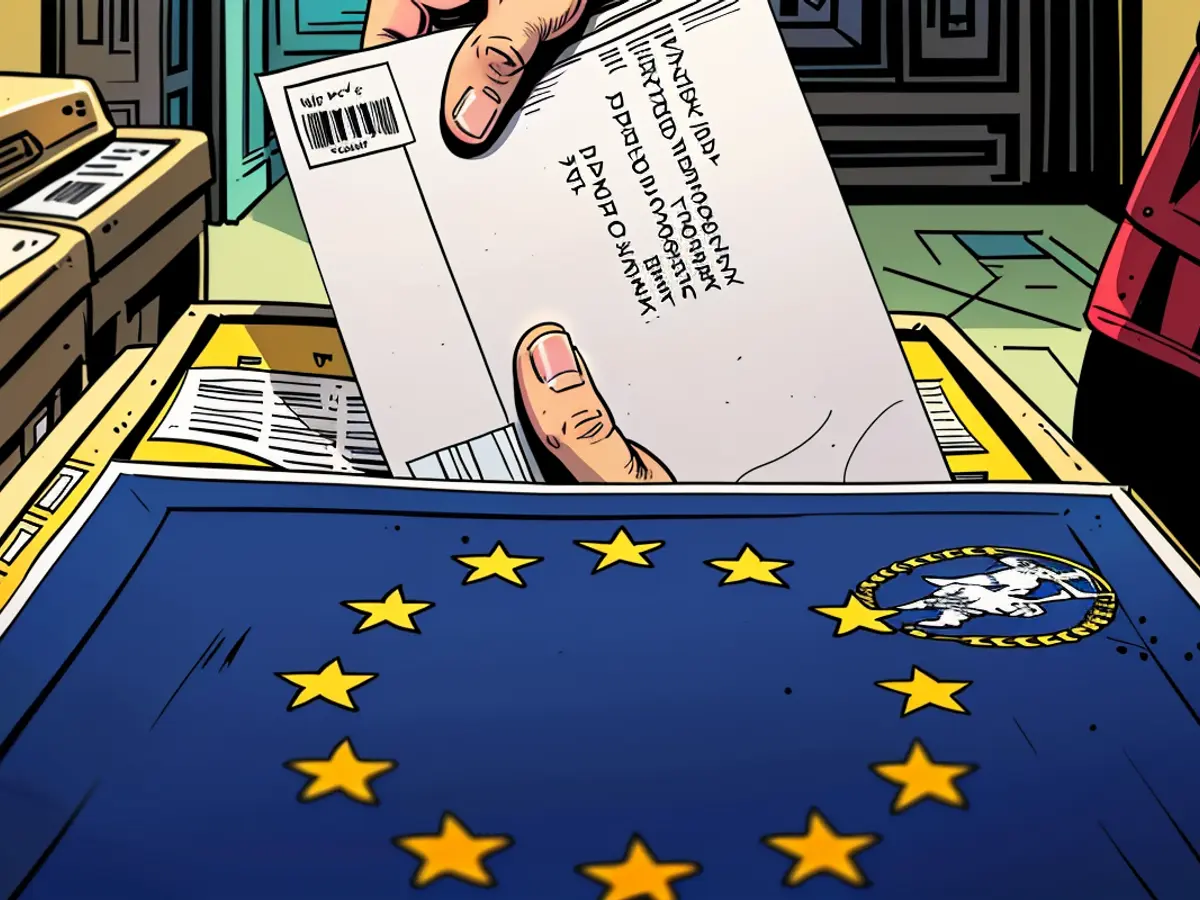European Union - The AfD becomes the leading party in the MV European elections, surpassing the CDU.
The Alternative for Germany (AfD) in Mecklenburg-Vorpommern nearly doubled its vote share in the recent European election, making it the clear winner in the northeast region. After processing two-thirds of the almost 2,000 voting districts, the party obtained around 30% of the votes. Five years ago, the party had gained 17.7% in the state. The Christian Democratic Union (CDU) experienced losses, dropping to an expected 21% in the northeast after having won every previous European election.
The Social Democratic Party (SPD) suffered a significant drop, currently standing at around 10%. This placed them behind the newly formed Wagenknecht Party BSW, which participated in the European election for the first time and obtained around 16% of the votes. The Left Party saw a major loss with more than two-thirds of its electorate, reaching approximately 5%. The Greens fell from 10.8% to about 4.5%, and the Free Democratic Party (FDP) dropped from 3.9% to around 2%. The local election results were not calculated until late in the night.
AfD state leader Leif-Erik Holm expressed his happiness about the party's success in winning the election, stating, "This is a great success for us. I can only thank our voters for making us the clear winner despite the constant slander campaigns." The preliminary calculations showed the AfD ranking second across the country with about 16.5% of the votes. Holm regarded this outcome as a sign of discontent with the current coalition government in Berlin.
Mecklenburg-Vorpommern's SPD state chairwoman, Manuela Schwesig, expressed concerns about the rise of the AfD in eastern German states. She stated, "No democratic party can consider themselves a winner today." Schwesig found her party's performance disappointing and attributed it to the actions of the federal government. "The election result sends a message to the traffic light in Berlin. The citizens expect that tasks are addressed collaboratively," insisted Schwesig.
As per the preliminary calculations, the governing party was projected to attain around 14% nationwide, making it worse than their 2019 result. However, Schwesig predicted a high likelihood that a Social Democrat from Mecklenburg-Vorpommern would be represented in the European Parliament again after a five-year absence.
CDU state leader Daniel Peters was satisfied with his party's success in the European election. "The Union has achieved a strong result," he stated after the publication of the numbers, which showed the CDU and CSU combined attained around 30%. "The Union is the only barrier against the far-right and extreme left. The election is also a vote on the work of the traffic light. And this vote has forced Scholz into a crash," he explained. In the 2019 European election, the CDU in the northeast maintained the top spot with 24.5% despite losses.
The Greens in Mecklenburg-Vorpommern characterized their party's performance in the European election as unsatisfactory. "Since 2019, the mood in the country has changed dramatically and is now driven by fears and concerns," remarked co-chairman Ole Krüger as the reason. Preliminary calculations suggested the Greens would achieve 12% nationwide. In 2019, they had secured 20.5%, almost double the current result. Surprisingly, Rostock Green politician Niklas Nienaß, who had made it into the European Parliament in 2019, would not be making it this time.
A total of 2,450 candidates and applicants contested for the 520 seats in the six district councils and the two city councils in Rostock and Schwerin. The results from the districts and the two free cities are vital for the official state election outcome. In 2019, the CDU was the strongest local force with 25.4%, followed by the Left (16.3%), SPD (15.4%), AfD (14.0%), Greens (10.3%), and the FDP (4.3%). Local voter groups and independent candidates united to obtain 10.4%.
The Interior Ministry estimated that there are around 10,000 municipal political positions and offices to be awarded in all towns in the state, including mayoral posts. 658 of the 725 cities and towns in the state are managed by honorary mayors and mayors.
Read also:
- Despite the AfD's success in the EU elections in Mecklenburg-Western Pomerania, the party still lagged behind in other German states.
- The EU elections in Mecklenburg-Western Pomerania saw a significant shift in votes, with the SPD losing a significant share of its support.
- The results of the EU elections in Mecklenburg-Western Pomerania indicated that the CDU was not as popular as it once was, reflecting a trend seen across other German regions.
- Leif-Erik Holm, the AfD state leader in Mecklenburg-Western Pomerania, attributed the party's success in the EU elections to the dissatisfaction of voters with the current coalition government in Berlin.
- The FDP also struggled in the EU elections in Mecklenburg-Western Pomerania, losing a substantial portion of its vote share compared to the previous election.
- The Left Party faced serious losses in the EU elections in Mecklenburg-Western Pomerania, leading to concerns about their future electoral prospects in the region.
- In Berlin, the SPD welcomed the results of the EU elections in Mecklenburg-Western Pomerania, stating that they were eager to collaborate with other parties to address the challenges facing the country.
- The results of the EU elections in Mecklenburg-Western Pomerania highlighted the need for all parties to work together to build a more united and inclusive Europe.
- The EU elections in Mecklenburg-Western Pomerania took place on a Sunday, and polling stations remained open from 8:00 am until 6:00 pm to accommodate voters.








